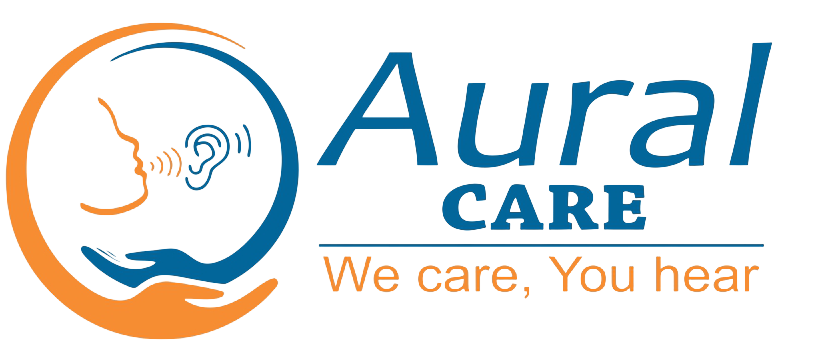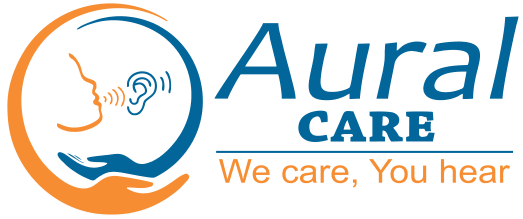It takes time to become used to wearing hearing aids. It takes time for your brain to get used to new sounds, improve speech recognition, and block out background noise. If you’ve never used hearing aids before, you may be curious about how long it takes for your brain to adjust.
According to studies, most users see noticeable improvements in 30 to 90 days, but it may take up to six months for them to fully adjust. Within the first three months, almost 80% of users report having clearer hearing. However, a number of variables, including age, the degree of hearing loss, and the frequency of wearing hearing aids, affect the precise time frame.
Let’s take a closer look at how your brain adjusts to hearing aids and how to expedite this process.
Why Does the Brain Need Time to Adapt to Hearing Aids?
The brain tends to “forget” specific sounds as hearing loss frequently develops gradually. Your brain is suddenly inundated with auditory information that it hasn’t processed in years when you begin wearing hearing aids. At first, this may feel too much, causing sensory overload.
Here’s why adaptation takes time:
- Relearning Sound Processing: The brain must rewire itself to recognize speech patterns, background noise, and subtle sounds.
- Speech Recognition Improvement: Distinguishing between similar-sounding words becomes easier with practice.
- Noise Filtering: Your brain learns to separate important sounds from unnecessary noise.
The Hearing Aid Adaptation Timeline
Each person’s experience is unique, but here’s a general timeline for how long it takes to adapt to hearing aids:
Week 1: Initial Adjustment
- It can feel overwhelming over the first few days. Sounds could seem excessively loud or strange.
- A greater spectrum of frequencies is being adapted to by your brain.
- Some people get ear fatigue or slight discomfort.
- Although they have trouble with background noise, about 50–60% of users report improvement.
Week 2-4: Early Adaptation
- Your brain starts recognizing familiar sounds more naturally.
- Speech clarity improves, making conversations easier.
- You begin to filter out unnecessary background noise.
- Around 70% of users report feeling more comfortable with their hearing aids.
Month 2-3: Significant Progress
- Your brain becomes better at distinguishing speech from noise.
- Sounds feel more natural, and discomfort decreases.
- Listening effort is reduced, leading to less fatigue.
- About 80% of users experience substantial improvement in their hearing experience.
Month 4-6: Full Adaptation
- Your brain has fully adapted to the new auditory input.
- Sounds feel completely natural, and background noise is less distracting.
- By this stage, about 90% of users feel confident with their hearing aids.
Factors That Influence Adaptation Time
Several factors can impact how long it takes for your brain to adjust to hearing aids:
1. Severity of Hearing Loss
- People with mild hearing loss adjust faster than those with severe loss.
- If you’ve had untreated hearing loss for years, adaptation may take longer.
2. Age and Brain Plasticity
- Younger individuals adapt more quickly due to higher brain plasticity.
- Older users may take longer but can still achieve great results with patience.
3. Daily Wear Time
- Wearing your hearing aids consistently (at least 6-8 hours per day) speeds up adaptation.
- Inconsistent use can delay progress and make it harder for the brain to adjust.
4. Type of Hearing Aids
- Digital hearing aids with advanced noise reduction and AI-driven sound processing offer a smoother adaptation experience.
5. Support and Rehabilitation
- Working with an audiologist for adjustments and hearing exercises can improve adaptation speed.
How to Speed Up Brain Adaptation to Hearing Aids
Want to shorten the adjustment period? Follow these expert tips:
1. Wear Hearing Aids Regularly
- Aim for at least 6-8 hours per day, even in quiet environments.
- Avoid taking them off unless necessary.
2. Engage in Conversations
- Speak with friends and family to improve speech recognition.
- Listening to audiobooks and podcasts can also help your brain adjust.
3. Practice Active Listening
- Try focusing on different sounds in various environments.
- Pay attention to background noise and how your brain processes it.
4. Start in Quiet Environments
- Begin in a quiet room before gradually moving to noisier settings.
- This helps your brain adjust without feeling overwhelmed.
5. Be Patient and Positive
- Accept that adaptation is a process.
- Your brain needs time to relearn sounds, so don’t get discouraged.
Common Challenges and How to Overcome Them
1. Sounds Seem Too Loud or Unnatural
- This is normal in the first few weeks. Your brain will adjust over time.
- Audiologists can fine-tune your settings for better comfort.
2. Difficulty Understanding Speech in Noisy Environments
- Background noise filtering improves with practice.
- Modern hearing aids offer directional microphones and noise reduction features.
3. Ear Fatigue
- Taking short breaks (15-20 minutes) can help reduce discomfort.
- Gradually increase your wear time each day.
When to Seek Help from an Audiologist?
If you experience persistent discomfort, distorted sounds, or struggle with speech recognition beyond three months, schedule a visit with your audiologist. They can:
- Adjust your hearing aids for a better fit.
- Provide auditory training exercises.
- Offer guidance on maximizing your hearing experience.
Conclusion
Hearing aid adaptation is a gradual process that calls for perseverance, practice, and patience. Although most people experience improvements in 30 to 90 days, it may take up to six months to fully adjust. Regularly wearing your hearing aids, conversing with others, and letting your brain spontaneously recover sounds are the keys to success.
Every hearing journey is different, and we at Aural Care are aware of this. Our skilled audiologists offer individualized assistance to guarantee a seamless transition and give you the confidence you need to achieve better, more natural hearing. Don’t be afraid to get professional advice if you’re having problems; proper maintenance is the first step toward better hearing!
Do you need professional guidance? For individualized hearing solutions, get in touch with Aural Care right now!
Contact Us!
Google Location: GB7, 822, Rajdanga Main Road . Opp. GST Bhawan. Kol 700107


